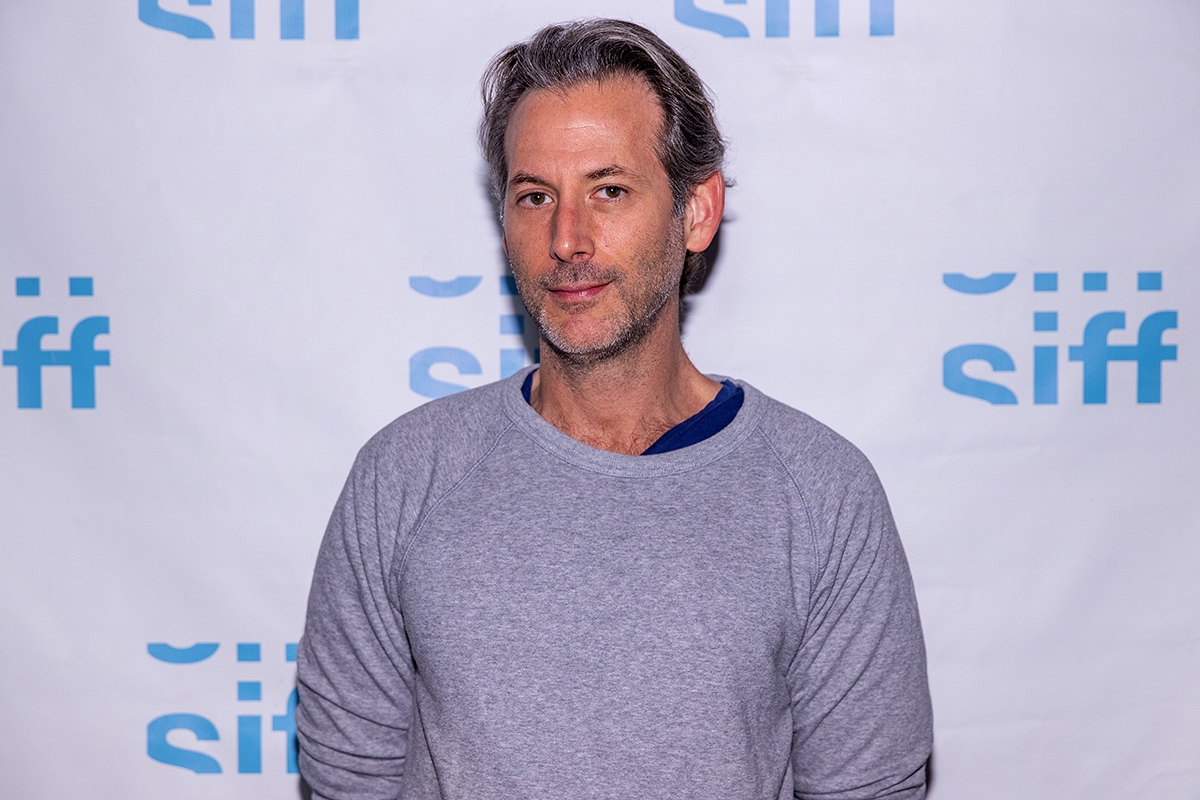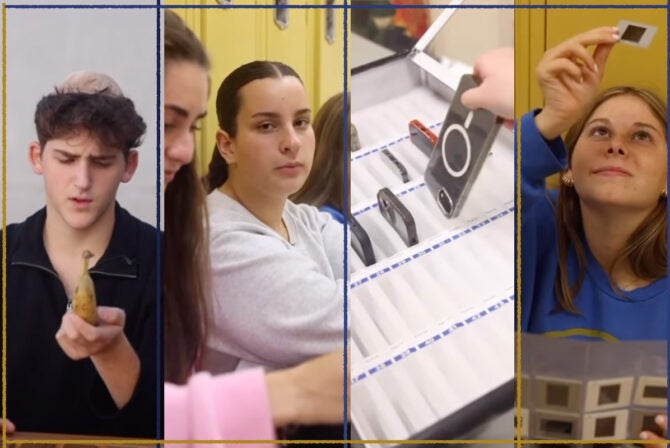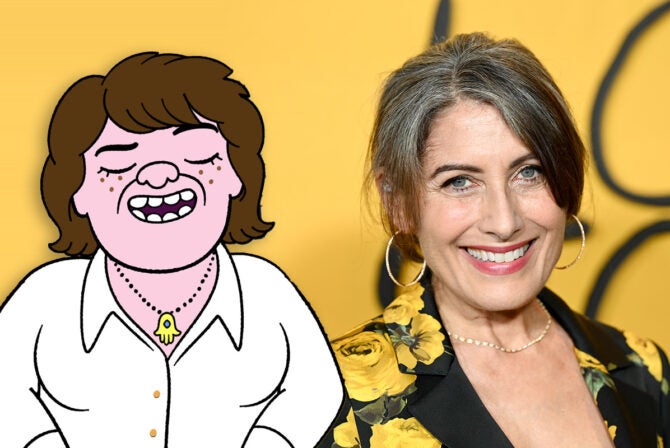In a 2017 interview with Marc Maron, director Jeff Baena, who died by suicide this past Friday at age 47, spoke about the way Jewish mysticism impacted his work. “There’s this thing called tikkun, where you find the sparks of divinity in the trash and elevate it to make it divine,” he said.
Baena’s films felt like that. He took “gutter” things — mental illness, senseless deaths, ugly human impulses, Italian American fast food chains — and made them divine. His work was extremely funny, visually captivating, and despite being so wide-ranging in subject matter — from period pieces to zombie flicks — so very clearly his own.
I remember watching the first feature movie he co-wrote in his early 20s, David O. Russell’s “I Heart Huckabees,” and how it forever changed the way I thought about film. The writing was so sharp and funny, a profoundly philosophical movie that felt sincere and not self-important while also expanding your world.
Every film after that felt like a truly unique gift, a movie-watching experience that was all its own and one that you could rewatch over and over. They are movies that you can watch on your own for comfort in a dark moment, but I love the communal experience of watching and laughing at them with other people, of talking about them afterwards. His movies feel communal too, with big ensemble casts that let every castmember shine. And many of his films were filled with little Jewish details that made them even more delightful for this particular Jewish viewer.
There was “Life After Beth,” a Jewish zombie movie that starts with a shiva (there were real halakhic reasons why Baena chose to make the family of the titular Beth, played by Baena’s girlfriend and future wife, Aubrey Plaza, Jewish). There was “Joshy,” about a bachelor’s trip gone wrong, in which Adam Pally and Jenny Slate’s characters bond over a Jewish summer camp connection. There was even a Jewish joke in “The Little Hours,” Baena’s movie set in a Middle Ages convent and based on “The Decathlon,” that had me howling, featuring Paul Reiser as the most Jewish of Middle Ages Catholic dads, as Maron rightfully observed in his interview with Baena.
Baena grew up in a Jewish home in Miami. His father had moved the family there because of his work as a lawyer. He credited the early childhood experience of watching “Clockwork Orange” and then “8 1/2” with first instilling in him a love for strange cinema, and his parents’ divorce with informing his sense of humor (“most comedy probably comes from drama,” Baena said in 2022). His family was originally from New York, and Baena would end up back in the city to study film at NYU, where he also took classes on Jewish mysticism and philosophy and minored in Medieval studies.
He moved to LA after film school, where his first gig was working with filmmaker Robert Zemeckis as a production assistant, a and where he briefly met Steven Spielberg, who gave him a pep talk about filmmaking. They worked on the 2000 movies “What Lies Beneath and “Cast Away” together. He worked on four films with David O. Russell, including a re-write of “Meet the Fockers.” And then Baena ventured out on his own. “Joshy” was meant to be his debut film, but when actor and collaborator Adam Pally’s mother passed away before they started shooting, he ended up working on the 2014 “Life After Beth” instead. In 2016, he released “Joshy,” then “The Little Hours” a year later, one of two of his movies that were shot in Italy.
Baena’s last two films were co-written with Jewish actress Alison Brie (“GLOW”). There was the haunting “Horse Girl,” inspired by Brie’s family history with schizophrenia and mental illness, and his last, “Turn Me Round,” in which Brie plays a manager at an Italian chain called Tuscan Grove, who gets sent on a trip to Italy by the company.
“As a director Jeff strove for truth. Nothing could sound, look or feel inauthentic, and that is a direct representation of who Jeff was. Authentic,” Pally wrote in a moving eulogy to his friend, whom he called a “sweet Jewish boy from Miami.”
“You never worried that Jeff wasn’t telling you the way it is. Cause Jeff’s virtue was telling you the way it was,” he continued.
That is indeed the wonderful thing about Baena’s movies, from the humorous lines to the portrayal of both death and mental illness, which strayed away from melodrama — grief and psychological struggles both felt real and natural and sometimes, as they are in life, funny. They made anyone struggling with them feel seen in little and big moments, in ways that could sometimes feel triggering but that always felt real.
“He was a collaborator, a mentor, the scrappiest basketball player with the ugliest jump shot you ever saw. He was a talented director with impeccable taste and vision, he was a connector of people, a fosterer of possibility, the guy who knows where the best restaurant was no matter where you were. An overly gracious host with an almost disturbing open door policy, a film encyclopedia, and most importantly to me a friend,” Pally wrote about Baena.
“His movies were so original. He was a brilliant writer and director and on top of that so visual with an amazing eye. And so kind and thoughtful bringing everyone together (almost always in Italy!!!) his work lives on. His memory lives on forever,” Molly Shannon, who frequently starred in Baena’s films, commented on Pally’s post. Brett Gelman and Lauren Weedman also shared their profound love for the direcor who “made everyone his family” and “knew how to gather people together and create actual community.”
Aubrey Plaza, whom he married on their 10th anniversary back in 2011, released a statement with the Baena family after his passing, asking for privacy amidst their “unimaginable loss.”
Baena’s loss is indeed unimaginable. His movies hold in them that beautiful sense of community he helped foster. May his memory be a blessing.
If you are having thoughts of suicide, call or text 988 to reach the 988 Suicide and Crisis Lifeline.








